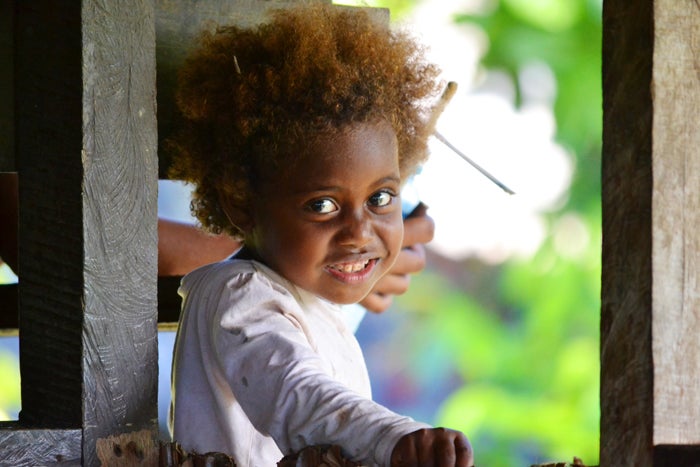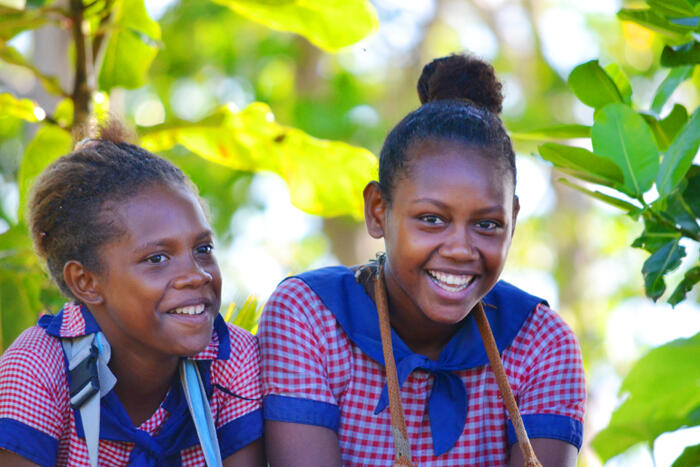There is no doubt that our peoples and nations can experience inclusive growth and progress but it requires a brave confrontation of fundamental realities that dictate one's life, even minutes after their first breath.
For some, this could mean being drowned by the midwife for being a girl. For others, an importance bestowed that can displace his sister from school regardless of her performance. Still a child, she may be forced to marry. She may be pulled out of school to begin a lifetime of childbearing and servitude to her husband.
For some however whose parents understand that being female makes absolutely no difference to their babies' abilities and potential, there is parental love and nurture, and support of one's dreams from the very beginning - the creation for an enabling environment for this individual is a life-long exercise for family and (like-minded) friends.
The rewards of such an investment in the girl child is not localized to her family: the rippling effect has time and again shown that when you educate a girl to her highest potential, everyone benefits.
This week, the global community of United Nations member states observed the International Day of the Girl Child (October 11) which was themed: "Girls' Progress = Goals' Progress: A Global Data Movement".
This year's theme recognizes that what counts for girls is to be counted; development stakeholders must address issues relating to the girl child: what counts for girls is to be counted.
"Data that can make the lives of every girl, in every setting, visible and accessible are essential to sustained progress," Bruce Campbell, United Nations Population Fund, UNFPA, Director and Representative said.
"With access to this type of data and information, policymakers, communities, civil society organizations, youth-led groups, activists and girls themselves can shape policies and initiatives that positively affect the lives of millions of girls around the world."
The new State of World Population report, to be launched by UNFPA, the United Nations Population Fund, later this month, examines how the support we provide to adolescent girls today will determine our collective well-being tomorrow.
Data, girls and development
There are numerous ways of contributing to an enabling environment that will ensure the girl child and adolescent girls realize their rights and effectively contribute to the realization of the SDGs. Investing in adolescent girls allow them to stay in school, gain skills, marry later, have fewer and healthier children, and earn a larger income to invest back into their families and communities.
These investments must be driven and informed by high-quality data for maximum impact and results, and to track progress. This is particularly important for identifying and tackling the needs of the most marginalized girls - those about whom we often know the least.
In the Pacific's Solomon Islands, one of the ways development planning has been enhanced to ensure targeted and effective approach is the provincial planners' conference (on population and development), supported by the United Nations Population Fund, UNFPA.
In its third year, provincial planners converge in the capital, Honiara where population and development-related dynamics are reported against and progress information shared.
"The fact that they are here to share experiences etcetera would motivate those who are comparatively alittle behind," Daniel Rove, Ministry of National Development Planning and Aid Coordination director said.
"The conference is to support and facilitate the population and development agenda under the International Conference on Population and Development (ICPD) Programme of Action (PoA), Solomon Islands is a signatory."
A milestone for the Solomon Islands and the UNFPA as one its development partners at this year's conference was the launch of the Solomon Islands National Population Policy 2017 - 2026.
"There has been so much improvement already; if there is no funding we do not let this be an obstacle but rather we work smartly," Mr Rove said. "The emphasis has always been to utilize data for planning, for example the provinces are now beginning to use information in the family health card to inform decision-makers of needs at the provincial level, to convince them of the need for appropriate resources."
UNFPA Pacific Director and Representative Bruce Campbell said as both Pacific island countries and United Nations agencies begin the path to the realization of the Sustainable Development Goals (SDGs), we must acknowledge that our collective success depended on how specific and inclusive our development plans are for girls.
"The challenges many girls face remain unaddressed, and this valuable segment of society is repeatedly unable to realize its full potential," Mr Campbell said.
"Every girl has the right to a safe and successful transition into adulthood and the right to embrace the opportunities that the future holds for her. Now is the time to fully exploit the power of data as one of the most critical tools for development and for protecting and promoting adolescent girls' rights."
Globally-speaking, fewer than 50 countries can provide data that are disaggregated by sex and age. Vast gaps in data exist in many areas, including poverty, intimate-partner violence, and adolescent deaths from pregnancy and childbirth complications, especially in the 10- to 14-year-old age range.
Adolescent girls in the developing world are a huge, untapped resource, but they need special attention in order to live up to their full potential.
Another milestone for the Solomon Islands is the successful establishment of a provincial planning and policy unit in Choiseul Province. Two years ago, Simpson Qalo attended and presented the concept at the provincial planners; he received funding for its establishment and by the 2016 October conference, he was reporting on the Unit's progress in the last year.
"We had a lot of data which was being captured but in one place so the unit is like a one-stop shop in the province for data which are captured from family health cards, education evaluation data, teacher's data and or word profiling,'' Qalo said.
"We have provided them to ministers of provincial governments and it also equips planners and resources people to make plans ... we want to see that development is well-distributed."

Girls in the SDGs era
The new United Nations 20130 Agenda for Sustainable Development and its accompanying 17 sustainable development goals aim for equitable, inclusive development that leaves no one behind.
Studies have repeatedly affirmed globally that when adolescent girls are educated, healthy, skilled and empowered - everyone benefits. Discrimination, gender roles and reproductive health problems limit girls' dreams for the future and reduce the contributions they could make to their communities.
Ending gender discrimination against adolescent girls is a fundamental first step to ensuring that women have equal rights. Without action, the unequal gender relations and power imbalances that affect adolescent girls will persist throughout their adult lives.
"UNFPA's support for the planners' conference and the pilot project of the provincial planning and policy unit is an investment in data that will then inform development that can and should finally inform specific gaps in development, related to girls," Pauline McNeal, Solomon Islands UNFPA Programme Specialist said.
"Adolescent girls hold the key to achieving the SDGs and by investing in an enabling environment in which they can succeed in their chosen field, we will unleash their potential that will only contribute to greater peace, progress and prosperity for all."
Perhaps we could all begin by ending the sex-based determination of one's life but rather picturing baby girls minutes after they are born in their dive wetsuits as marine biologists or dive instructors, in their spacesuit as astronauts, in their classroom of attentive students because their passion as teachers encourages learning, in overalls because they love the intricacies of an engine, the list goes on.
What the world will look like in 15 years will depend on our doing everything in our power to ignite the potential of our girls today.


